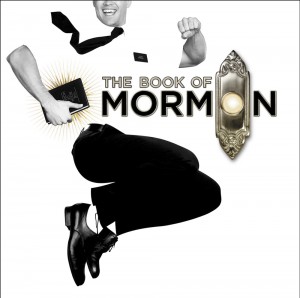Campus Events
Most Mormons unfazed by mocking musical
Washington University students lined up hours early in Bears Den and the Danforth University Center for subsidized tickets to last weekend’s performances of the Tony-award winning musical “The Book of Mormon” at The Fabulous Fox Theatre.
In September, Sophomore Class Council bought 250 tickets to the musical to sell to students at a drastically reduced cost. Emma Tyler, president of Sophomore Class Council, attended the musical with other class council members and said she found it both informative and hilarious.
“You go into it knowing it’s satire, poking fun at something, so you don’t take anything too seriously,” Tyler said.
The musical from the creators of South Park dramatizes the struggles of young Mormons on a mission in Africa and contains material that has been considered offensive by some Mormons.
Opinions on the musical differ among members of the Church of Jesus Christ of Latter-day Saints (LDS) in the University community.
Overall, the church and its members are not concerned by the musical’s popularity. Rather, they hope that the musical will pique interest in the LDS church.
“I hope [students] go to the show and decide to read the book,” James Hendricks, director of Washington University’s LDS Student Association, said. “It’s nothing like the show.”
Alexis Wood, a Mormon and first-year graduate student in English literature, saw “The Book of Mormon” in Denver with a group of friends as a student at Brigham Young University.
Wood and her friends found the musical funny, though parts of it made them a bit uncomfortable.
Wood said that many of the musical’s portrayals of Mormon beliefs and practices are inaccurate. She cited the representation of movement founder Joseph Smith, the portrayal of LDS missions and the idea that Mormons follow their religion blindly as examples.
Wood said the musical exhibited a generally negative attitude toward religious beliefs that cannot be proven through logic rather than an attack on the LDS church in particular. She is not concerned by mockery of her beliefs.
“If we were worried about being ridiculed, we wouldn’t believe in our religion…ridicule is going to happen to you,” she said.
Virginia Maynes, a Mormon law student, has seen benefits from the musicals popularity. It has triggered questions and discussion among her acquaintances who have seen the musical and know she is Mormon.
“[It’s an] opportunity to share my beliefs in a way I didn’t before,” she said.
She sees “The Book of Mormon” as a satire and does not think people take its jokes about Mormons seriously. Maynes said she does not feel personally offended by the musical or its popularity, in part because she thinks it is not meant to be an accurate portrayal of Mormons.
On the other hand, Kevin Black, professor of psychiatry at the Washington University School of Medicine, said he is personally bothered by the musical and its popularity.
Black pointed out the inconsistency that a musical casting Mormons in a generally negative light is acceptable but such treatment of American Indians, Muslims or Australian Aborigines would be met with criticism.
“We can do better than that as a culture,” he said, in regard to targeting religious beliefs.
Generally, members of the LDS church expressed confidence that the musical will have little effect on their personal beliefs or the way they are viewed.
“It’s really easy to get mad, but as far as I’m concerned, it makes no difference to what I believe to be true,” Ryan Cooper, a Mormon doctoral candidate in the Olin Business School, said. “I don’t worry about any damage done to my church or the gospel we preach. [The church] will withstand any opposition, insults or mockery.”
Andy Lee, the member of Sophomore Class Council who suggested subsidizing tickets to the musical, hoped the play would stimulate discussion on campus about religion and how it affects views of public policies.
He thought the musical’s satirical treatment of religion actually cast a more positive light on religion in general.
“We all have stereotypes of religion and people who don’t believe what you believe,” Lee said. “[Religion] has negative effects, but at the same time it’s necessary for many people.”
Sophomore Jennifer Wittenberg thoroughly enjoyed the musical, though she acknowledged that much of its humor was inappropriate.
“I wouldn’t recommend it to my parents, but it was perfect for a college audience,” she said.
Wittenberg said the musical did not affect her view of Mormons but sparked a discussion with her roommate about how the adaptation of religion can help a society.

